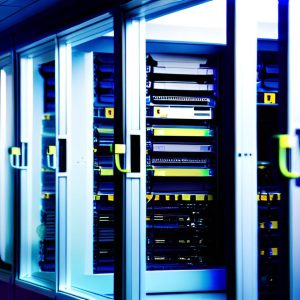
We live in a world where computers are everywhere: from pocket phones to giant data centers. And now it’s time for the next big breakthrough in computer technology: quantum computers. But what are these “quantum” machines?
What is a quantum computer?
A quantum computer is a special kind of computer that uses the laws of quantum mechanics to process information. It’s a bit like magic, but scientific.
Conventional computers work with bits, which can be either in a state of 0 or 1. Quantum computers use quantum bits, or qubits, which can be in states 0 and 1 simultaneously due to the phenomenon of superposition. It sounds strange, but this feature allows quantum computers to perform some tasks much faster than conventional computers.
Why are they so special?
Imagine you have a giant mystery book where you have to find a single word. A regular computer will search for a word by flipping through pages one by one. And a quantum computer can “view” many pages simultaneously through superposition.
This doesn’t mean that quantum computers will replace our regular PCs or phones. They are better suited for some specific tasks, such as factorizing large numbers or modeling molecular interactions.
What are the challenges on our way?
Quantum computers are a fairly new technology, and we still have a lot of work to do to make them mainstream. One of the problems is “quantum decoherence”. Qubits are very sensitive to the external environment, and their “quantum state” can be easily disturbed. This places great demands on the conditions in which quantum computers operate.
Where are quantum computers used?
Thanks to their unique ability to process data simultaneously, quantum computers are already being used in a number of industries:
Medicine: modeling molecular structures can help develop new drugs or study biological processes at the molecular level.
Finance: portfolio optimization, risk modeling, or forecasting market trends can become faster and more accurate.
Encryption: Quantum computers can play a key role in breaking traditional cryptographic systems, but they can also help create new, more secure encryption methods.
Logistics: route optimization, delivery planning, and resource allocation can become much more efficient with quantum computers.
What are the prospects?
Quantum technology is still in its infancy, but its potential is limitless. In the future, we can expect quantum networks, quantum internet, and perhaps even quantum personal computers.
However, as with any new technology, quantum computers also face challenges. The main one is to improve the stability and reliability of qubits. When this problem is solved, we can expect the spread of quantum computers in all areas of our lives.
Quantum computers are not just the next stage of technology development. It is a revolution in the way we process and interact with information. Although we still have a lot of work to do, we can be sure that quantum computers will make a significant contribution to shaping the future world.

